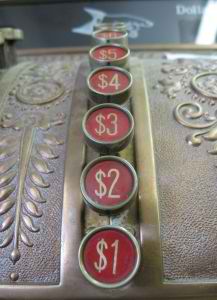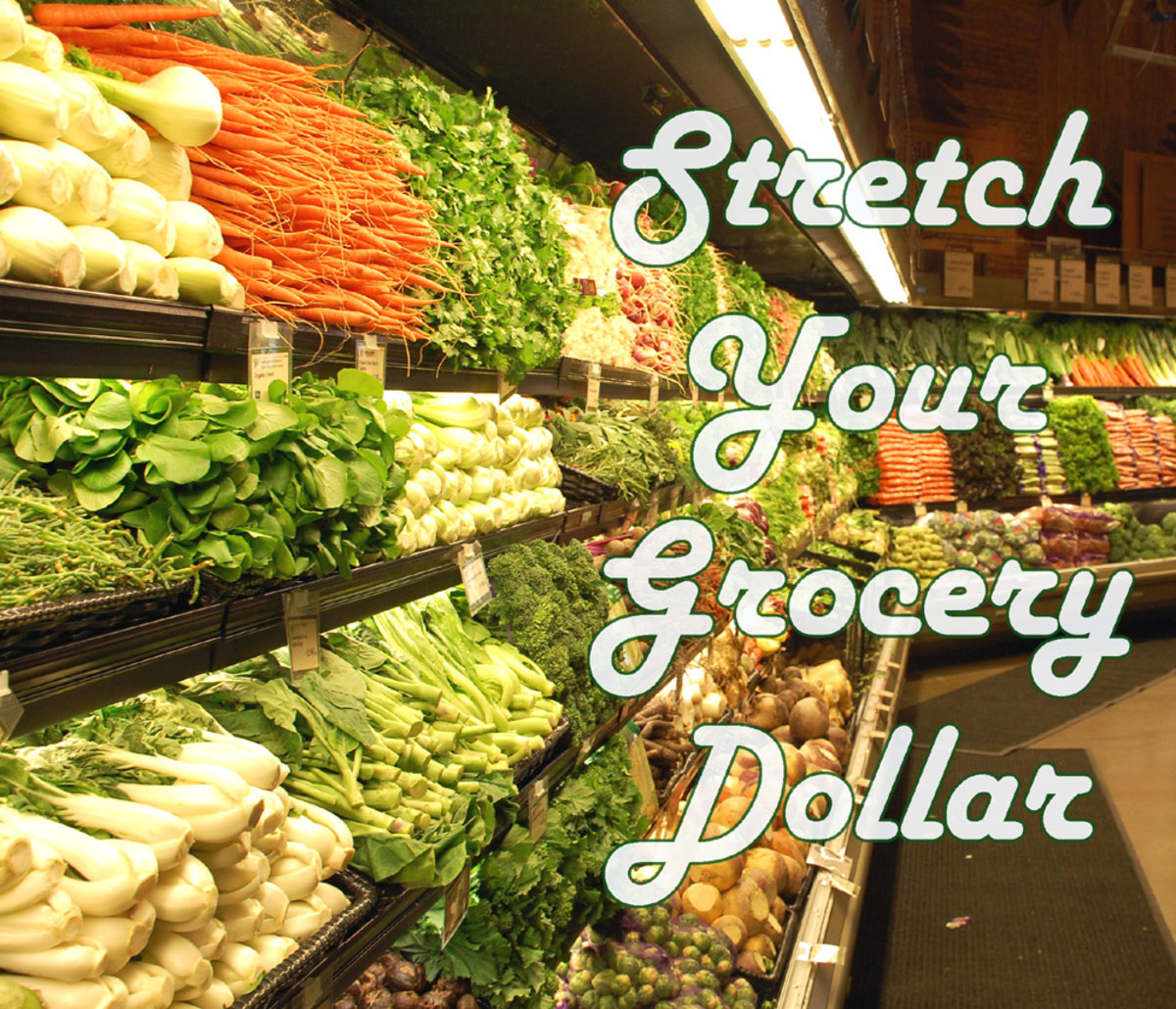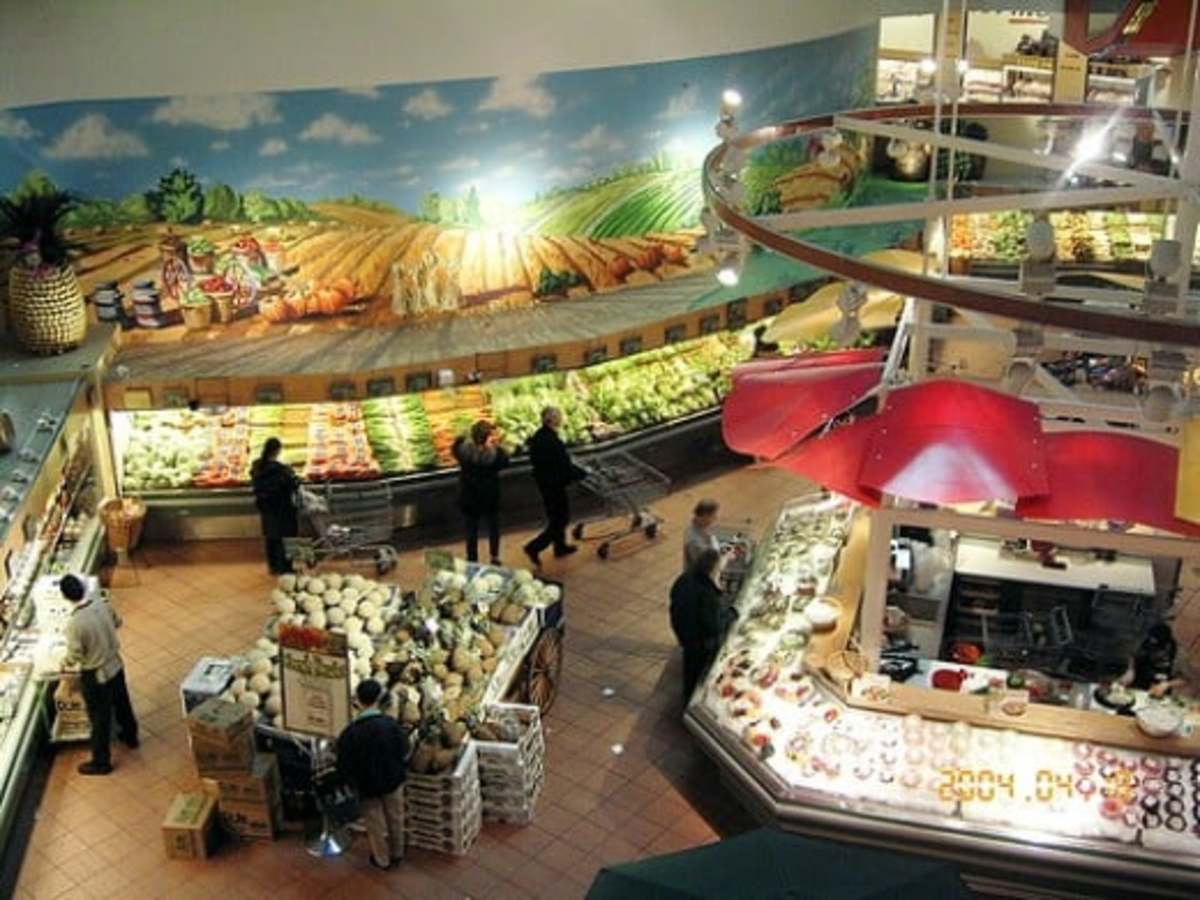Frugal Living - Don't Buy the Most Expensive Thing Every Time

High Prices at the Grocery Store
Some individuals and families in America, despite the economic downturn from 2008 - 2010 (continuing in some ares in 2011), purchase the most expensive brands of products and services that are available. This includes supermarket items.
Some have never considered looking at comparative costs of good and services, just as others have not read the nutrional contents of food store items. In a grocery trip, some do not make a shopping list, nor add prices together while shopping -- They are surprised at the checkout lane by a larger total than expected and feel that they cannot put anything back. Another scenario is that of children demanding products that are expensive and unnecessary, particularly "impulse shopping" items placed on end caps, in displays that partially block grocery aisles, and at the counters at the check stands (like candy and magazines).
Making a shopping list, not shopping for anything when you are hungry (often increases sense of urgency) or in a hurry, comparison shopping, and a stand against frivolous purchases will all help one to economize at the grocery store. Coupons that, even when doubled, result in costs that are higher than the good-quality store brand are a waste of time. Purchases items that have as little packaging as possible. At the same time, do not be tempted to buy poor-quality items because they are cheap, as this is a waste of money when you throw the item out. Avoid purchasing the most expensive brands and the least expensive off-brands and stay somewhere in the middle price range; then use effective coupons as well, and take advantage of the 10 for $10 sales you see that slash prices.
Above all, avoid throwing away still-wrapped still-good products each week to replace them with new things - some people throw out hundreds of dollars a year this way.
A good way to economize is to cut out desserts altogether. Compared to losing one's house, eliminating seven nights of desserts for a year is no loss at all. Other folks cut out all snacks and eat only at mealtimes, but this is sometime difficult to do. Fresh fruits and vegetables are much less expensive than pre-packaged cupcakes, if you like snacks; and vending machine prices are much higher than off the shelf at the grocery.
Coffee drinkers sometimes switch from half and half to whole milk or 2% milk in their coffee as another way to economize. Further, some coffee houses will drastically reduce the cost of a cup of coffee if you bring in your own clean travel mug.

Pet Responsbilities
The concept of giving up a pet, if one can no longer afford to keep it, is a diffcult one to face. Even more difficult is the prospect of finding someone to take that pet and provide it with a forever home. Broadcast and Cable TV stations are full of images of abandoned animals no longer wanted and languishing in city and county animal facilties. For those who love animals, these are difficult to watch.
In extreme cases, poverty stricken pet owners have not even been able afford euthanasia of dying animals; and putting animals down because one cannot afford them any longer is shocking. Some pet owners still leave animals by the side of the road near farmland, thinking that the animals will successfully fend for themselves, but this often is not the case. Some apartment dwellers leave animals when they move, hoping the next tenents will take them.
Pet owners intent on leeping their animals should provide adequate food, clean water, exercise, and veterinary care for their pets. If they are unable to do so, they should not be pet owners. Skimping on food, water, and vet care is not an act of economizing. However, some pet owners tell me that skipping treats altogether is an effective economy and also controls their pets' weights.
Finances - When You Need Help With Your Pet
-
Some city, county, non-profit, and private animal shelters maintain a network of volunteer foster care providers for pets. If you cannot afford the care your pet needs, contact any of these places in your community and ask for help. When a family in Michigan recently lost their home to a fire, the local animal agency took the family pets for several weeks until the family was able to move into a new apartment. An agency in your area may be able to help you if you need it.
-
Veterinary Care - Increasingly, pet shops are providing space for vets and their assistants to come in and hold day-long clinics to offer less-expensive (but just as good) immunizations and other care. Call your local pet shops and ask about this. Low-cost spay and neuter clinics are emerging as well.
-
College and Universities - If a local veterinary school operates in your area, it will likely offer occasional free treatment in severe emergency cases of injury and sickness. This is not guaranteed, but it is a possibility.
Another aspect to think about is how many animals you can afford to care for adequately. for instance, a family at 150% or even 200% of poverty level in my state should not proceed to adopt 4 large dogs, but it happens more frequently than we'd expect. The result is that both animals and chldren suffer a inadequate nutrition (have a look at Animal Cops on TV).
A period of economic downturn is also not a prudent one in which individuals of moderate to low income might adopt pets. However, if families or singles feel that they can afford pets, they might consider adopting just one animal rather than 2,3, or 4. After that, they can shop around for animal food prices - the most expensive food should not be necessary, but the cheapest is likely not very nutritional. In fact, some pet owners cook for their pets after consulting with a vet that can give them the nutritional requirements.
Pet Recipe









